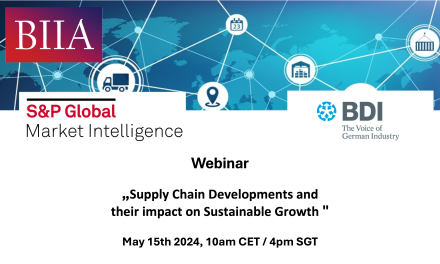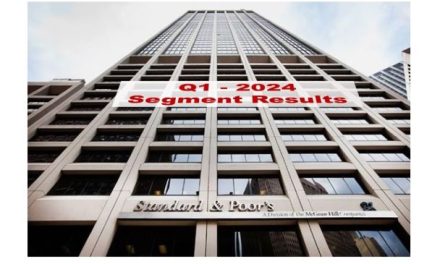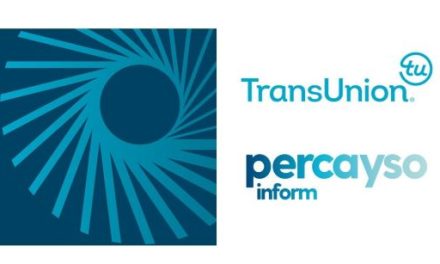Worldbox Country Risk Climate February 2024
INDONESIA
Summary
| Overall Risk Score 24 (Stable)
Political risk: Stable 8/10 Economic risk: Stable 8/10 Commercial risk: Stable 8/10 The risk assessment of a country is made up of 3 components, being Political, Economic and Commercial. Each component is scored out of 10 with 1 being the highest risk and 10 the lowest. |
ESG Risk: 6/10 (Stable)*
*Environmental, social and governance (ESG) issues are becoming increasingly important to companies, investors and consumers in Southeast Asia. That is why we are now preparing a separate ESG score and section with our quarterly country risk reports. We explain how each country rates, looking at the E, S and G individually, and outline recent developments. |
Political Risk – Stable at 8
The Republic of Indonesia was created in 1945 after a long period of Dutch colonial rule and Japanese occupation during the Second World War. Indonesia is today the world’s third largest democracy (and largest Muslim democracy). A directly elected president serves as both head of state and of government. There is a maximum two-term (five years per term) limit on the presidency. A directly elected House of Representatives (the lower house of the bicameral People’s Consultative Assembly) acts as a counterweight to the president.
While now a thriving democracy, Indonesia has experienced long periods of authoritarian rule. The mercurial and charismatic dictator Sukarno ruled the country from 1945 to 1967. General Suharto overthrew Sukarno in 1967, ruling until 1998 when he stepped down amid widespread unrest.
The current president, Joko Widodo (Jokowi, as the president is popularly known), first elected in 2014, has effectively endorsed the candidacy of Defence Minister Prabowo Subianto in the February 2024 election. Jokowi’s 36-year-old son, Gibran Rakabuming Raka will stand as the running mate of Prabowo as Jokowi seeks to create a new political dynasty in Indonesia.
Jokowi’s endorsement of Prabowo, 72, could prove crucial to the outcome of the February vote. The president remains highly popular with a 75% approval rate, a reflection of the buoyant economy. Jokowi defeated Prabowo twice in the 2014 and 2019 presidential votes.
The presidential election took place on 14th February along with legislative elections at the district, municipal and national parliament level.
As of the release of this document – the results after a preliminary quick count, Prabowo secured roughly 58% of votes, comfortably exceeding the 50% threshold required to win the elections. Former Jakarta Governor Anies Baswedan received roughly 25% of total votes, and Ganjar Pranowo received 17%.
Official results of the 2024 elections will take up to 35 days from polling day to be finalized. However, based on quick count results’ historical performance and the low margins of error on their results for this election, Prabowo is almost certain to become the next president of Indonesia. In the extremely unlikely event that Prabowo falls short of the 50% threshold in the official count, firms should note that a second round would take place in June 2024 and Ganjar and Anies would likely join forces to challenge him.
Economic Risk – Stable at 8
A strong post-pandemic rebound has pushed Indonesia back into the upper-middle income band of countries, the World Bank reported in July 2023. Gross national income per capita climbed to US$4,580 in 2023, according to the bank from US$4,140 in 2022. The latest rankings should bolster Indonesia’s ambition to become a high-income country by 2045, the main aim of Jokowi’s economic platform.
The economy is much more dependent on domestic demand than other regional economies. Private consumption powers over half of Indonesia’s GDP. Exports account for just 20% of GDP, compared to 60% for Thailand and 176% for Singapore. Investment expenditure accounts for around 30 percent of total GDP in Indonesia – the second-largest contributor after consumer spending – with foreign direct investment a key driver of investment spending.
Overall, Indonesia retains many economic advantages, including an abundance of natural resources, a large and youthful working population, and a growing middle class. The banking system is also robust, with relatively low levels of non-performing loans and strong public finances. Indeed, it is tipped by many analysts to rise steadily through the economic rankings in the coming decades. In 2022, for example, the advisory firm Wellington Capital, forecast Indonesia could be the world’s fourth largest economy by 2030 on current trends.
The country also appears well placed to absorb external shocks, according to the IMF: it has ample FX reserves; the need for foreign financing is limited with a current account surplus of US$4.2 bn in 2022; the public debt ratio is relatively low; and it has improved capacity to deal with COVID-19 infections. The long-term local-currency government bond yield also maintains a comfortable margin over the global benchmark, which should also help reduce capital outflow pressures under risk scenarios.
Commercial Risk – Stable at 8
Corruption remains a challenge and acts as a major deterrent to business and investment. Indonesia is ranked 110th (out of 180 countries) in Transparency International’s Corruption Perception Index (CPI) for 2022 with a CPI score of 34 – sliding down from 38 and a ranking of 96th in 2021.
Corruption has gained increasing prominence in the media. In the latest scandal to hit the headlines, the head of the country’s anti-corruption commission is being investigated for extorting money from the agriculture ministry, the police reported in November. The case is linked to that involving Agriculture Minister Syahrul Yasin Limpo, who was arrested in October following allegations he pocketed more than $800,000 in public funds. Bahri has repeatedly denied any involvement in extortion or bribery.
Indonesia is ranked 73rd out of 190 countries in the World Bank’s latest Ease of Doing Business guide, up from 91st out of 180 in 2016. Persistent trade and investment barriers (driven by protectionist sentiment), persistent and pervasive corruption, poor infrastructure, inconsistent interpretation and enforcement of laws, and labor rigidity are the greatest challenges facing businesses and the economy, according to the latest US Country Commercial Guide for Indonesia.
Indonesia’s economic freedom score (from the Heritage Foundation) is 63.5, and it ranks 60th in the 2023 Index. It is ranked 10th out of 39 countries in the Asia–Pacific region, and its overall score is above the world and regional averages. Indonesia has undertaken wide-ranging reforms to address various structural weaknesses in the economy and improve competitiveness, according to the Heritage Foundation. Recent reforms have put greater emphasis on improving regulatory efficiency, enhancing regional competitiveness, and creating a more vibrant private sector through decentralization.
February Bulletin
Political Risk – Stable at 8
Although a secular country, religious issues can exert a significant influence over how Muslim Indonesians vote. They account for around 87% of the electorate. There is expressed support for Palestinians amid the escalating conflict in Israel and Gaza. Prabowo, for example, has publicized his involvement in government missions to support Palestine, from deploying military aircraft for delivery of humanitarian aid to offering the dispatch of a hospital ship to Gaza.
Prabowo’s manifesto pledges to maintain Jokowi’s economic policies including continuing to develop rural areas, providing direct cash aid and building low-cost homes. Pranowo has set out ambitious economic targets, including 7% economic growth annually through 2029 versus the current rate of around 5%.
Prabowo has also vowed to continue with Jokowi’s plan to transfer the capital from Jakarta to a new city on Borneo.
Overall, Worldbox Intelligence believes Indonesia’s political and economic stability is unlikely to be greatly affected by the election results.
Economic Risk – Stable at 8
The economy posted its slowest growth in two years in the third quarter, expanding by 4.94% annually, down from 5.17% in the second quarter. Shrinking exports and softening household demand were behind the slowdown, reflecting the combination of domestic interest rate hikes, falling commodity prices and weakening global growth.
Higher government spending should support the economy in the final quarter of 2023 and the first three months of 2024 amid the election campaign. In October, the government launched a policy package that included a tax cut for homebuyers, an extension of rice handouts and additional cash handouts. The government anticipates growth of 5.04% in 2023, rising to 5.24% in 2024. That compares with economic growth of 5.3% in 2022 – the highest level in nine years when resource-rich Indonesia benefited from a global commodity boom.
Bank Indonesia embarked on an aggressive series of rate hikes in August 2022, raising interest rates for six consecutive months up until February 2023 when it paused the monetary policy tightening. However, in a surprise act the bank hiked rates again in October to 6% from 5.75%. The move was aimed at supporting the rupiah, which had fallen by around 8% against the dollar since May.
The annual rate of core inflation, which strips out government-controlled prices and volatile food prices, edged up to 2.56% in October from 2.28% in September, it was still within the central bank’s 2%-4% target range for the year, however, the central bank focuses on core inflation. Most analysts believe the central bank will not increase interest rates again.
In September 2023, Indonesia’s parliament passed President Joko Widodo’s 3,325.1 trillion rupiah ($216.06 billion) budget for 2024, with a fiscal deficit of 2.29% of gross domestic product. The budget assumes economic growth of 5.2%, which is slightly higher than 2023’s outlook of 5.1% and a state revenue target of 2,802.3 trillion rupiah.
Commercial Risk – Stable at 8
In its 2022 Article IV review of the economy, the IMF reported that the financial system appears sound, and the credit outlook is improving. It said that a credit rebound in 2021 had been bolstered by accommodative monetary and macroprudential policies, as well as improved access to government guarantees for bank lending to SMEs and corporates. It added that while asset quality risks have generally declined with the economic recovery but are still elevated in sectors hard-hit by the pandemic. The IMF concluded that although crisis-related measures are still in place, intensive supervision will be required to ensure prudent lending.
In November 2023, Fitch reported that higher interest rates should continue to support the margins of Indonesian banks in 2024.
Fitch earlier said that the overall asset quality for Indonesian banks should remain stable “given relatively healthy corporate and household balance sheets and further recovery in sectors hardest-hit by the pandemic”. Liquidity in the banking sector remains adequate despite monetary tightening. Fitch anticipates this to support the state-owned banks’ profitability by reducing pressure on their funding costs.
Environmental, Social and Governance (ESG) – Stable at 6
The United Nations’ Sustainable Development Goals (SDGs) are recognized as a beneficial framework for responsible investment. The Sustainable Development Report from Cambridge University Press assesses the progress of all 193 UN Member States on the SDGs. It provides a useful means of ranking Southeast Asian countries on their ESG progress.
Indonesia is ranked 75 out of 166 in the 2023 report with a score of 70.2.
Environment: Issues facing Indonesia include deforestation, water pollution from industrial waste and sewage, and air pollution in urban areas. The expansion of agriculture, particularly clearing land for palm oil production, is the major cause of deforestation. However, the logging industry is also a significant contributor to deforestation, with illegal logging occurring in many protected areas. Mining activities, such as coal and gold mining, have also led to the destruction of large areas of forests and the pollution of waterways.
The problem of air pollution is worsening, with Jakarta routinely ranked at the top of the list of the world’s most polluted major cities. Forest fires, pollution from coal-fired plants, emissions from cars, open burning, and biomass burning for cooking and heating are among the main causes. In 2021, an Indonesian court ordered President Joko Widodo and other senior government officials to improve the hazardous air quality of the capital Jakarta after finding them guilty of environmental negligence in a civil lawsuit. However, to date little has been achieved.
Social: The law provides, with some restrictions, provides for the rights of workers to join independent unions, conduct legal strikes, and bargain collectively. The law prohibits antiunion discrimination. Most workers are not covered by the minimum wage laws. However, the authorities only enforce labor regulations, including minimum wage regulations, in the formal sector, which employs around 4 in 10 workers. Those in the informal sector have few protections.
Governance: Indonesia continues to bring its legal, regulatory, and accounting systems into compliance with international norms and agreements. However, the regulations and enforcement are not yet up to international standards for shareholder protection. Indonesian businesses are required to undertake responsible business conduct (RBC) activities under Law No. 40/2007 concerning Limited Liability Companies.
February Bulletin
Environmental, Social and Governance (ESG) – Stable at 6
In September 2023, the government opened the country’s first carbon exchange for the trading of carbon credits. The exchange offers companies and financial institutions a mechanism to offset their emissions while also giving carbon reduction projects a source of funding. However, trading has started very slowly. Demand could be boosted in 2024 if Indonesia, as expected, implements a scheme to cap company’s emissions and tax them on any excess.
Latest economic data

f – forecasts
* – Worldbox Intelligence
** – Official Figures
Source: International Monetary Funds, unless otherwise stated.
Useful Links
https://www.adb.org/countries/indonesia/main
https://www.transparency.org/en/cpi/2021
https://www.imf.org/en/Countries/IDN
https://www.thejakartapost.com/
https://www.abc.net.au/news/topic/indonesia
About Worldbox Business Intelligence
Worldbox Business Intelligence, headquartered in Switzerland, is a Global API data solution provider of business intelligence and used in data analytics.
With the Global API solution Worldbox Business Intelligence enables clients and partners also a frictionless real time onboarding, KYC and compliance verification while rapid global investigations are provided, if needed.
Worldbox Business Intelligence provides global data in a standardised structure to more than 200 Million companies worldwide. The global network of subsidiaries, branches and desks allows to precisely and efficiently collect data and target key territories for clients and partners.”
“Worldbox Business Intelligence – Bringing Swiss Precision To Data”
Copyright (C) 2024 Worldbox Business Intelligence. All rights reserved.
Our mailing address is:
Worldbox Business Intelligence
Breitackerstrasse 1
Zollikon
Zurich 8702
Switzerland





























